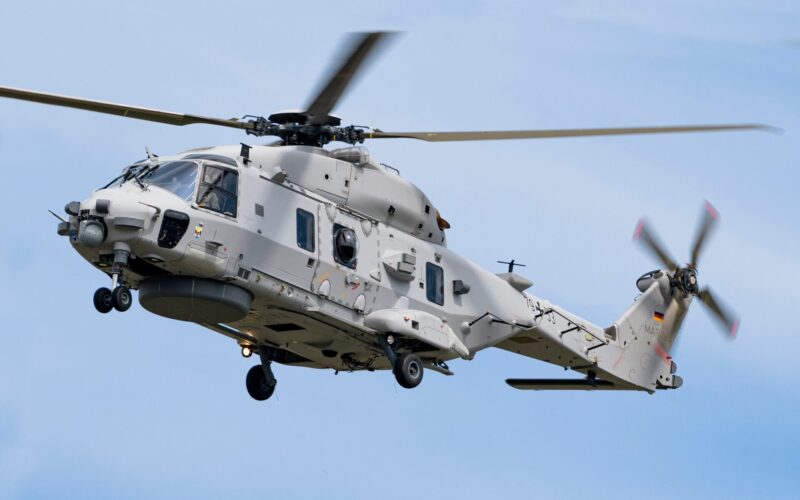An incident occurred between Russian and German naval forces in the Baltic Sea, raising concerns about escalating tensions in the region.
In late November 2024, the German frigate Nordrhein-Westfalen escorted a Russian corvette and a civilian tanker through the Baltic Sea as part of a routine surveillance mission, Der Spiegel reported.
When a helicopter from the German frigate was sent to inspect the vessels more closely, the Russian crew responded with red flares instead of routine radio communication.
The Baden-Württemberg-class frigates of the Deutsche Marine typically carry two NH90 Sea Lion helicopters on board.
Incident kept under wraps
German Foreign Minister Annalena Baerbock alluded to the event during a NATO meeting, where she criticized Russia’s “intensification of hybrid warfare” in the Baltic region.
“Ensuring peace also requires increased cooperation in the Baltic Sea region. Russia is expanding its hybrid attacks there,” Baerbock said. “NATO will further strengthen surveillance and protection of critical infrastructure. True to the motto: One for all, all for one.”
The minister pointed to examples, including GPS signal disruptions, suspected spying by civilian vessels, and damage to undersea pipelines and cables. In November 2024, the suspected sabotage of two data cables in the Baltic Sea disrupted communications between Finland, Germany, Sweden, and Lithuania.
When questioned about the incident, the German Defense Ministry did not confirm any details.
“There are occasional rule violations at sea or in airspace, but you can trust that the Navy or Air Force always respond calmly and professionally to de-escalate,” a defense spokesperson told journalists.
NATO has increased its vigilance regarding Russian operations in the Baltic Sea, especially suspected “ghost ships” used to evade sanctions on Russian oil exports. These vessels, frequently operating without tracking devices and under the flags of other nations, are occasionally escorted by Russian military ships.
Recurring tensions between Russia and NATO
Since the onset of Russia’s invasion of Ukraine, several NATO allies have reported reckless actions by the Russian military globally.
In July 2023, two separate incidents involved Russian Su-35 fighter jets harassing USAF MQ-9 Reaper drones and French Rafale fighters conducting missions against ISIS.
The US Air Forces Central suggested that the aggressive and reckless actions of the Russian Air Force in the Middle East could be a compensatory strategy linked to the Ukraine war.

